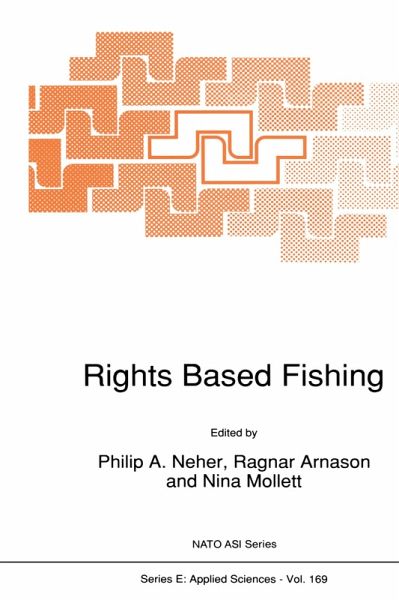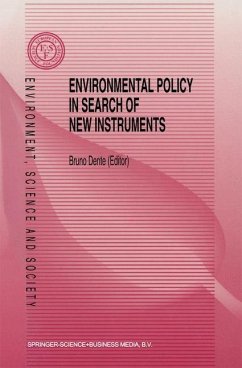
Rights Based Fishing
Proceedings of the NATO Advanced Research Workshop on Scientific Foundations for Rights Based Fishing Reykjavik, Iceland June 27 - July 1, 1988
Herausgegeben: Neher, P. A.; Arnason, Ragnar; Mollett, Nina
Versandkostenfrei!
Versandfertig in 1-2 Wochen
306,99 €
inkl. MwSt.

PAYBACK Punkte
153 °P sammeln!
The genesis of this conference was on a quay of the port of Bergen in March 1985. Ragnar Amason suggested to Phil Neher a small, mid-Atlantic conference on recent developments in fishery management. In the event, more than twenty papers were scheduled and over one hundred and fifty conferees were registered. Logistical complications were sorted through for a summer 1988 conference in Iceland. The really innovative management programs were in the South Pacific; Aus tralia and New Zealand had introduced Individual Transferable Quotas (ITQs); and Iceland, Norway and Canada were also experimenting...
The genesis of this conference was on a quay of the port of Bergen in March 1985. Ragnar Amason suggested to Phil Neher a small, mid-Atlantic conference on recent developments in fishery management. In the event, more than twenty papers were scheduled and over one hundred and fifty conferees were registered. Logistical complications were sorted through for a summer 1988 conference in Iceland. The really innovative management programs were in the South Pacific; Aus tralia and New Zealand had introduced Individual Transferable Quotas (ITQs); and Iceland, Norway and Canada were also experimenting with quotas. It seemed to the program committee (Rognvaldur Hannesson and Geoffrey Waugh were soon on board) that these quotas had more or less characteristics of property rights. Property rights were also taking other forms in other places (time and area licenses, restrictive licensing of vessels and gear, traditional use rights). The idea of rights based fishing became the theme of the conference.












